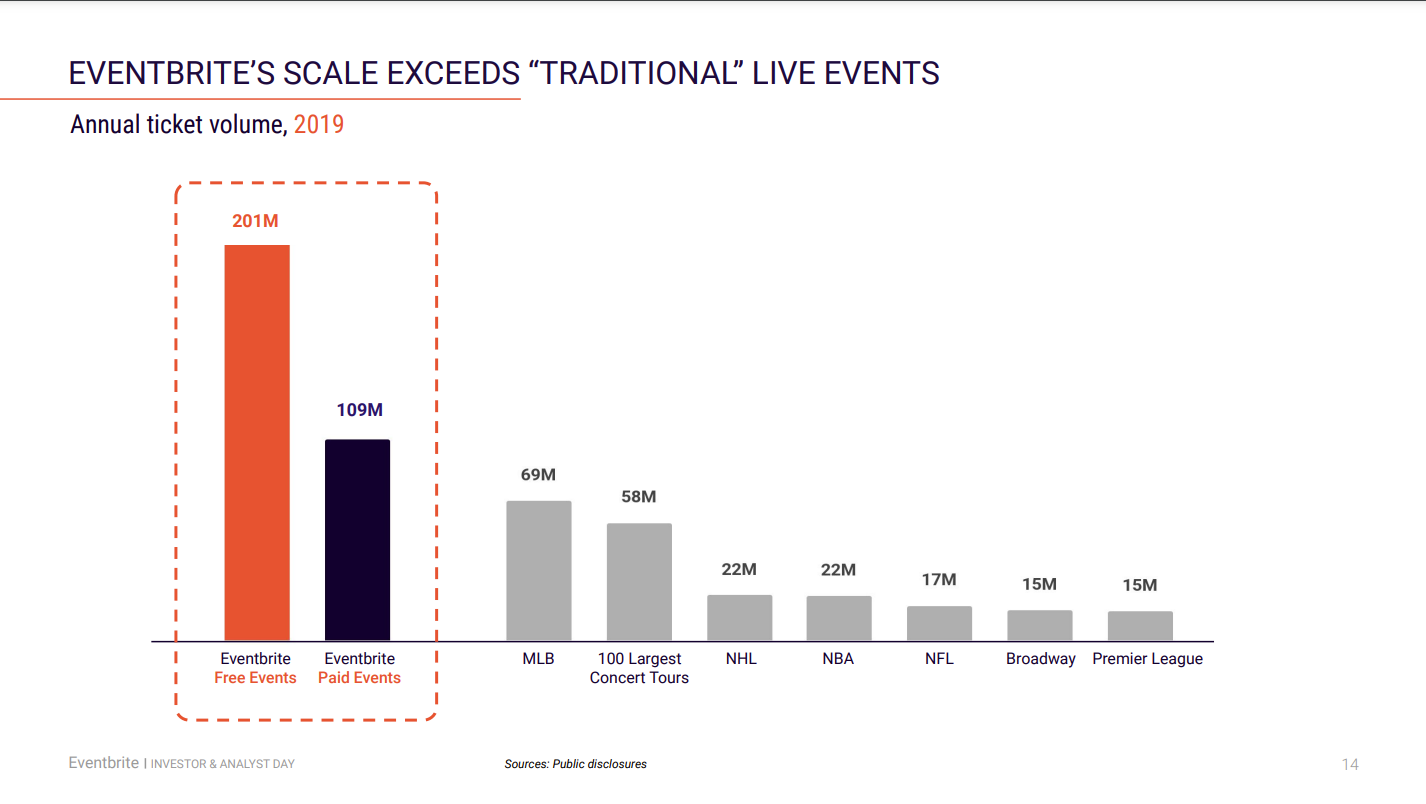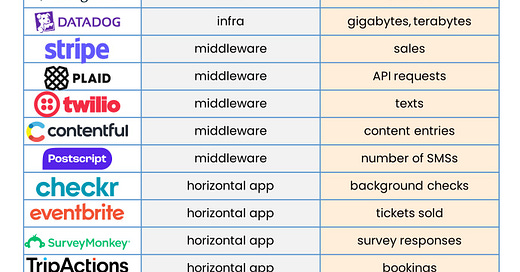

Preparing for a board meeting? Check out this pod I recorded with Dave Kellogg - we went DEEP on the art and science of great board meetings. Dave has sat on all sides of the board room table as a CMO, CEO, and VC.
You can listen on Spotify / Apple / YouTube
If you are usage based, you are intimately linked to the underlying value proposition of what you are selling. You live and die by how embedded and critical you are to how the user solves a problem.
One of the biggest challenges is determining how to price your product, and what value metric that should be linked to.
The purpose of a value metric is to communicate your product’s value to customers. It demonstrates an understanding as to why customers pay you for your service. Here are three factors to keep in mind when choosing your value metric, according to Snowflake (the usage based kings):
It should be easy for customers to understand immediately. Your value metric should not be complicated or incomprehensible.
It should align with your solution’s perceived value and represent the value your customers believe the solution delivers.
It should scale and grow consistently with your customers’ use.
Types of value metrics
There are some pretty common value metrics that companies rely upon, depending on the business type:
Space: Storage, Compute
Time: Hours, Minutes
Transactions / Throughput: Fraud Verification, Email, SMS
Sales: Dollars Processed
Count: Emails, Background Checks, Tickets, Contacts
I’ve done my best to cobble together a list of value metrics from 20 usage based tech companies below:
Infrastructure - Consumption based
Snowflake typically charges based on the amount of data storage (measured in gigabytes or terabytes) and the amount of data processed during queries (measured in terabytes scanned).
Elastic charges based on the amount of data ingested (measured in gigabytes or terabytes), the number of nodes deployed, or other metrics depending on the specific product.
Sentry charges based on the number of events (error or performance) captured by the system.
MongoDB Atlas, their cloud database service, charges based on the type and size of the database cluster (measured in storage capacity, e.g., gigabytes or terabytes), as well as data storage.
Datadog charges based on the volume of data ingested (measured in gigabytes or terabytes) and stored, as well as the features included in your subscription.
Middleware - Throughput based
Stripe charges based on the volume of payment transactions processed through their platform.
Plaid charges based on the number of API requests made to access financial data.
Twilio charges based on the number of communications (e.g., text messages, voice minutes) made through their APIs.
Contentful charges based on the number of content entries and assets managed in their content management system (CMS).
Postscript charges for the number of SMS messages sent through their platform. The pricing is typically based on the volume of messages sent per month.
Horizontal App - Count based
Checkr charges for background checks and verifications based on the number of checks performed.
Eventbrite charges based on the number of tickets sold for events and the features included in the event organizer's subscription.

Momentive (formerly SurveyMonkey) charges for survey responses and features. The pricing is based on the number of responses collected or the type of survey.
TripActions provides corporate travel solutions and typically charges based on the volume of bookings and travel expenses managed through their platform.
HubSpot offers inbound marketing and sales software. They charge based on the number of contacts in your database and the features included in your subscription.
Vertical App - Count based
Procore offers construction management software and typically charges based on factors like the number of projects, users, and the features included in the subscription.
Toast provides restaurant point-of-sale (POS) systems. They charge based on the number of terminals, orders processed, and additional features.
Mindbody offers software for health and wellness businesses. They often charge based on the number of clients or members, appointments, and features in the subscription.
Yotpo provides e-commerce marketing solutions. They charge based on the number of orders, reviews, or other customer engagement metrics.
ServiceTitan provides field service management software. They often charge based on factors like the number of users, job appointments, and features included in the subscription.
Some more usage based resources:
A word from our sponsor - Tropic
Visit the tropics, on Tropic! As the end of the year quickly approaches, we’re all in need of a well-deserved vacation. And when you use Tropic, you’ll have plenty of time to take one with all the time and money you’ll save at work.
Tropic’s spend management platform gives modern finance teams the visibility, savings insights, and overarching control they need. By orchestrating procurement, supplier management, and spend optimization from one consumer-grade platform, Tropic enables companies to see and seize every opportunity to save..
With an average cost savings of 23%, Tropic has helped finance teams take control of $3b in spend across 40k+ contracts.














